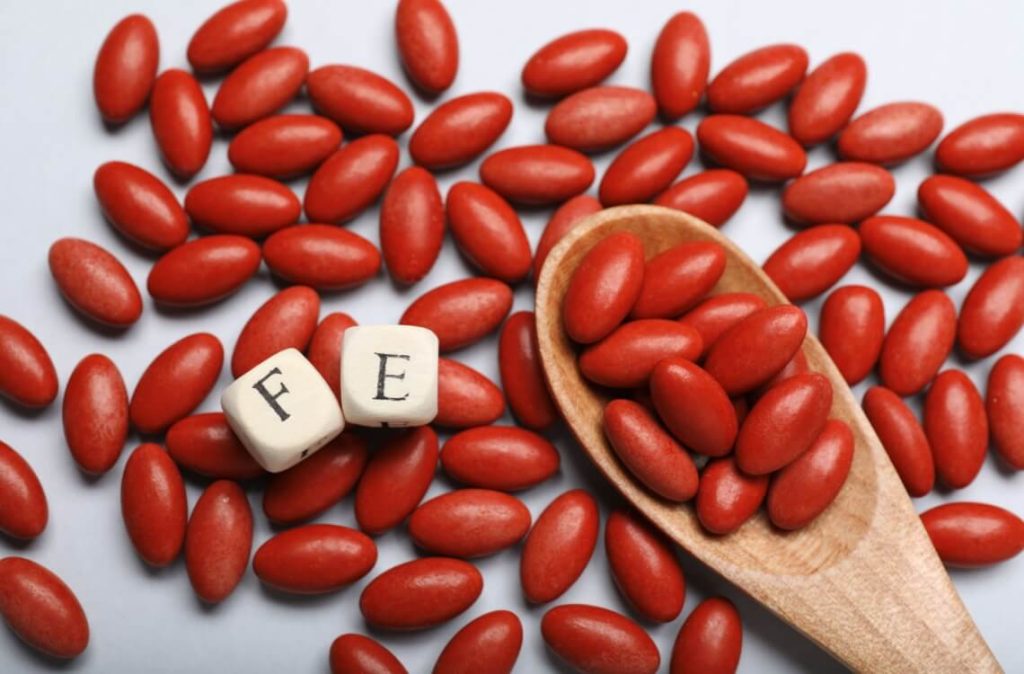Nazatul is a qualified pharmacist with 10 years of experience in pharmacy practice involving both hospital and community settings. She currently holds the position of Pharmacist and Key Account Manager at Primabumi Sdn. Bhd.
Here’s her insight on iron supplements for pregnancy nutrition.
Q1: What does it mean by iron supplementation?
Iron supplementation refers to the act of actively boosting one’s iron level through the intake of an iron supplement.
Since our body cannot produce iron on its own, the only way we can get this nutrient is through foods and health supplements.
Q2: Why is it so important to have enough iron in our body?
Iron is a mineral that plays many critical functions in our body, such as:
- producing haemoglobin, a protein in the red blood cells that carry oxygen from the lungs to all parts of the body
- optimising organ development and function, including the immune system and brain
- supporting the conversion of nutrients to energy in a normal metabolism
- aiding the production of collagen, an important component of the nails, hair and skin
- supporting DNA replication and repair
Q3: Who are at risk of iron deficiency?
Pregnant and breastfeeding women are particularly at risk for iron deficiency.
This is primarily due to their increased dietary requirements for all essential nutrients, including iron.
Other than those, the following groups of people should also pay extra attention to their iron intake:
- people who don’t take poultry, seafood and meat
- those who lose blood such as during menstruation and after physical trauma
- people who have gut problems in which their ability to absorb iron might be impaired
- cancer patients
- people with heart failure
- frequent blood donors (more than 3 times per year).
Q4: What may happen if I don’t get enough iron from diet?
Lack of iron poses various risks to your and your baby’s health.
Potential risks of iron deficiency to the mother include:
- iron deficiency anaemia (symptoms include weakness, tiredness, lightheadedness, pale skin, shortness of breath and and difficulty in focusing and memorising)
- low immune level, which means decreased ability to fight off infections
- postpartum depression
Potential risks of iron deficiency to the baby include:
- low birth weight
- premature birth
- perinatal death (the death of a baby between 28 weeks of pregnancy onwards and before the first 7 days of life)
- delayed psychological development, social withdrawal, and reduced ability to pay attention
Q5: Does every pregnant and breastfeeding mum need to take iron supplements?
Taking iron supplements may not be strictly necessary, even though you normally need to get more iron to meet your greater requirements during pregnancy and lactation.
Your doctor will need to perform a thorough evaluation to determine the need for iron supplementation.
The evaluation may include finding out your current iron level, dietary patterns, exercise routine, pre-existing medical issues, and use of medications or other supplements.
Afterwards, your doctor should be able to tell you whether or not you require iron supplements.
Q6: Can I take my iron supplement with my medications or other dietary supplements?
Iron supplements may interfere with the absorption of medicines and other supplements.
These include levodopa, levothyroxine, and calcium.
Some acid reflux medications like omeprazole, pantoprazole, and lansoprazole can reduce iron absorption.
To prevent these problems, you’re advised to take your iron supplement at least 2 hours apart from medicines and other supplements.
Q7: I noticed that the colour of my stool changed after I started taking my iron supplement. Is this normal?
Iron supplements may turn the colour of your stool almost black.
This is normal and does not mean that you are consuming an excessive amount of iron.
Q8: After I began taking my iron supplement, I experienced more episodes of nausea and constipation. What should I do?
Abdominal pain, nausea, vomiting, constipation, and diarrhoea are among the common side effects of iron supplementation.
Here are some strategies to overcome these issues:
- take your iron supplement after meals rather than on an empty stomach
- avoid taking your iron supplement with milk, tea or coffee
- increase your fluid intake and maintain a good hydration level at all times
- speak to your doctor or pharmacist about your problem (they may suggest a different iron supplement product with better tolerability)
Children are particularly at risk for iron poisoning.
Make sure your iron supplement is out of your children’s sight and reach to prevent accidental ingestion.
Q9: Do I need to continue taking my iron supplement after giving birth?
If your iron status is low during pregnancy and at delivery, your doctor will likely recommend you continue iron supplementation during the breastfeeding period or for at least 3 months after giving birth.
Disclaimer: The information provided in this article is for informational purposes only and should not be considered as medical advice from Motherhood. For any health-related concerns, it is advisable to consult with a qualified healthcare professional or medical practitioner.
For more insightful stories and fun recipes, stay tuned to Motherhood Story!

